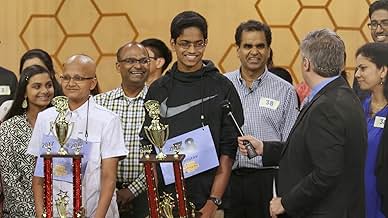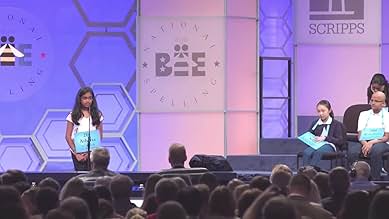Spelling the Dream
Original title: Breaking the Bee
- 1h 22m
Chronicle of the ups and downs of four Indian-American students as they compete to realize their dream of winning the iconic tournament.Chronicle of the ups and downs of four Indian-American students as they compete to realize their dream of winning the iconic tournament.Chronicle of the ups and downs of four Indian-American students as they compete to realize their dream of winning the iconic tournament.
























